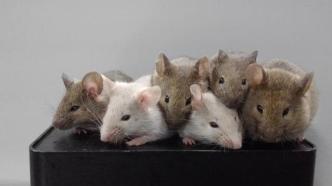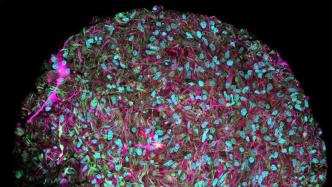
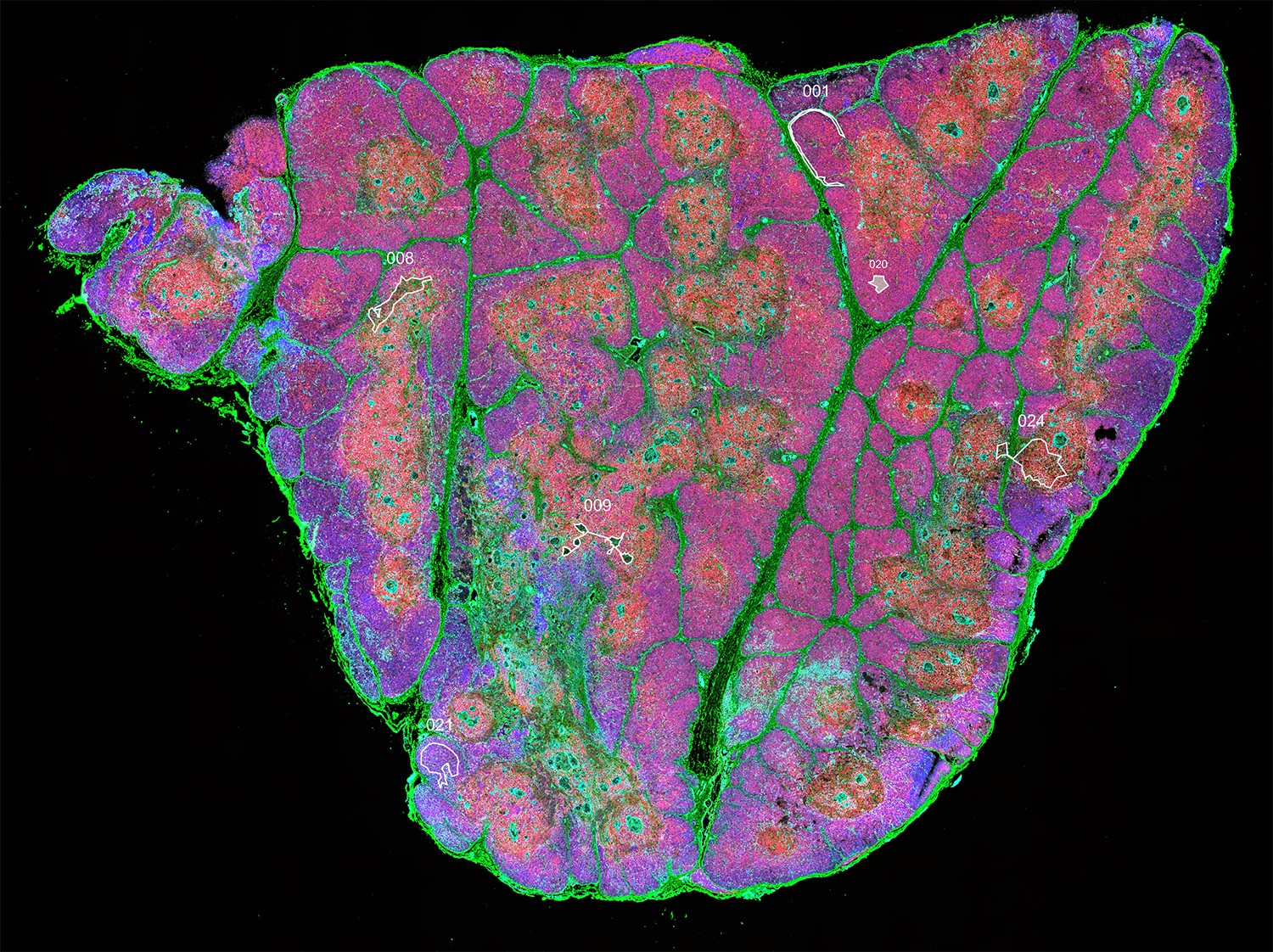
Histological section of postnatal human thymus. Those stained green are Polykeratin stem cells. Image: Roberta Ragazzini, Francis Crick Institute.
The thymus, which is located in the upper part of the human chest cavity and above the front of the heart, is composed of thin sheets of tissue and is called the "boot camp" of the human immune system. Here, immune cells T cells gradually mature and grow into "special soldiers" ready to attack at any time.
At the same time, it is one of the lymphoid organs necessary for people's life-long immune tolerance and not being attacked and killed by their own immune system.
The thymus is special. "After people are born, the thymus gland 'involutes' (shrinks in size) and is thought to regress during puberty," says Clare Green, media contact at the Francis Crick Institute in London, UK.
Especially when people enter old age, the thymus gland will shrink significantly, the related immune function will decline, and even lead to the occurrence of immunodeficiency-related diseases.
But this atrophy of the thymus is reversible.
At about 23:00 on August 30, Beijing time, a newly published research result in the international academic journal "Developmental Cell" has brought new imagination to people. According to a related paper, scientists have discovered stem cells in the thymus for the first time. The corresponding author of the paper is Paola Bonfanti, senior group leader of the Laboratory of Epithelial Stem Cell Biology and Regenerative Medicine at the Francis Crick Institute.
"It is paradoxical to find stem cells in such an organ. In particular, thymus stem cells have the typical characteristics of skin stem cells-continuously active." Claire Green told The Paper on August 30.
The paper shows that researchers characterized the cortical and medullary subdivisions of the human thymus at single-cell resolution and used newly discovered biomarkers to discover a new cell type with the potential for self-renewal and differentiation.
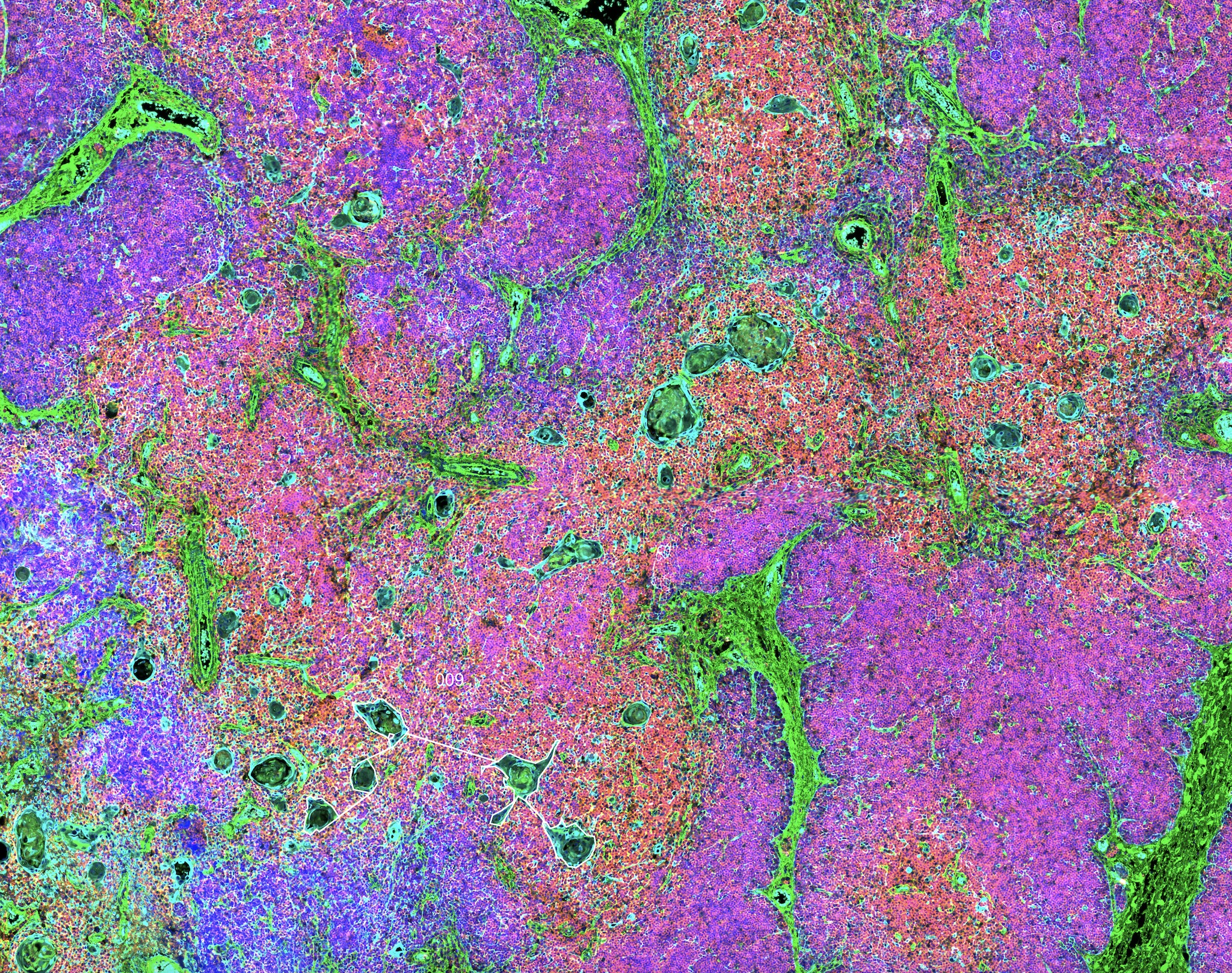
Magnified view of a histological section of postnatal human thymus. Image: Roberta Ragazzini, Francis Crick Institute.
The researchers demonstrated through experiments that all the cells in the thymic epithelium can be generated from the aforementioned single thymic stem cells.
According to a popular science article published on the official website of the Institute of Zoology, Chinese Academy of Sciences, stem cells are cells that have not been assigned specific functions, that is, their gene expression patterns have not yet been solidified. Stem cells can divide almost unlimitedly to generate new stem cells, and they can also differentiate into specialized functional cells such as nerve cells and blood cells under specific circumstances.
The researchers found clusters of stem cells beneath the organ capsule of the thymus and around blood vessels in the medulla.
Claire Green told The Paper that the thymus is the place where T lymphocytes are produced, and T lymphocytes are one of the immune cells that people use to fight viruses and cancer. Activating thymus regeneration may induce the body to produce more T lymphocytes. In the future, thymic stem cells may become one of the ways to regenerate the thymus of the elderly.
Paola Bonfanti said: "This study brings a key change in our understanding of why the thymus can regenerate. Stimulating the thymus to produce more T cells has many important implications, such as helping the immune system of the elderly to respond to vaccines. vaccination to respond or improve their immune response to cancer."
They will continue to study the life-course properties of thymic stem cells and how they can be regulated for potential therapeutic use.
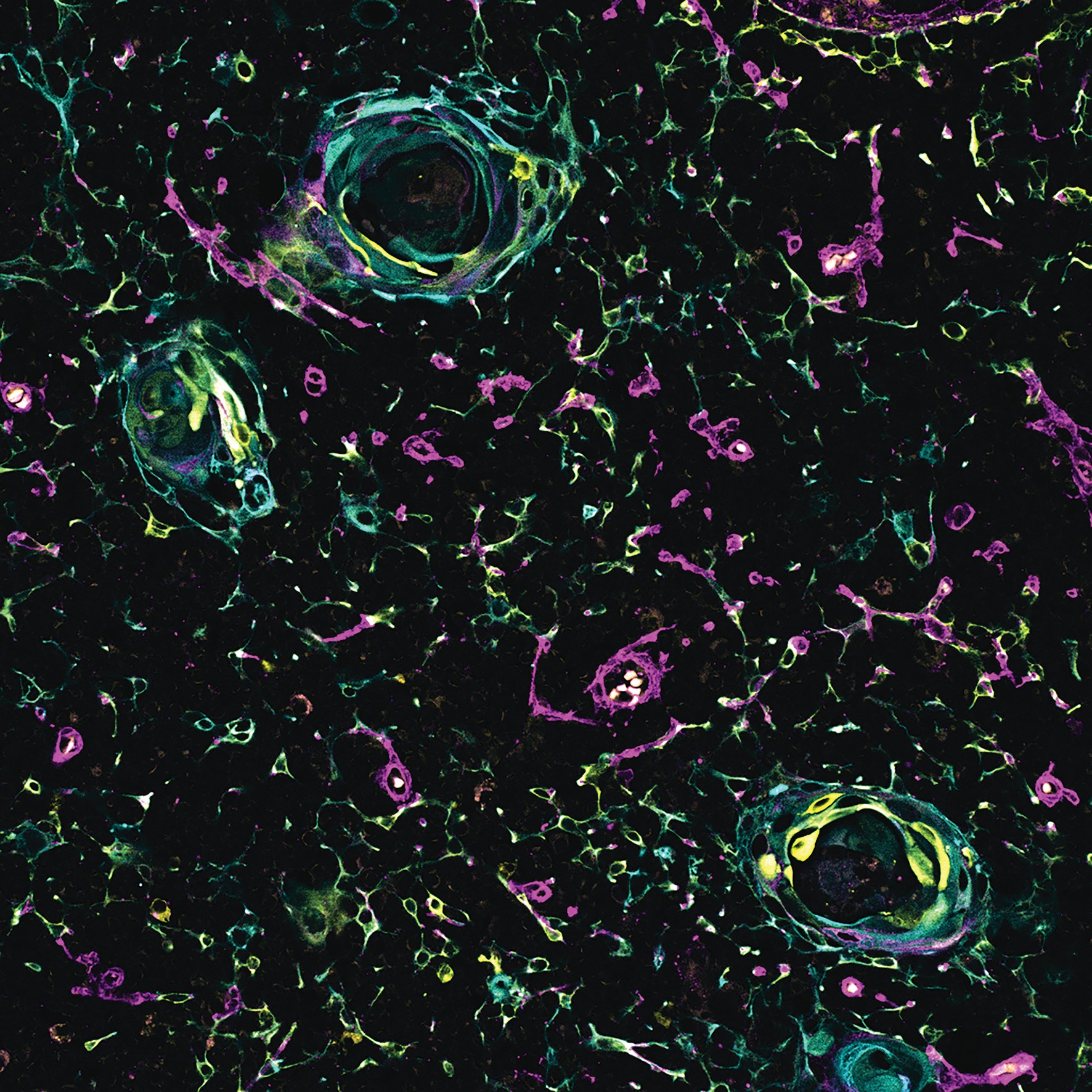
The medullary region of the thymus in a 1-year-old patient. Image: Roberta Ragazzini, Francis Crick Institute.
According to the article "Latest Research Progress in Thymus Degeneration and Reconstruction" published in 2022 in the Chinese academic journal "International Journal of Immunology" jointly sponsored by the Chinese Medical Association and Harbin Medical University, the thymus is also an important component of the human body's defense mechanism. The thymus contains T lymphocytes at different stages of development and differentiation. These T lymphocytes form a T lymphocyte pool that can specifically recognize different types of antigens and at the same time develop tolerance to self-antigens. With the continuous growth of adult age, the thymus will produce a certain degree of structural atrophy and functional decline with age. Thymus degeneration is also an important cause of immunosenescence. Thymus degeneration will cause heterogeneous changes in the CD4+ T cell population, leading to a decrease in the body's immunity and increasing the body's risk of infection, autoimmune diseases and tumors.
Link to the paper: https://www.sciencedirect.com/science/article/pii/S1534580723004136?via%3Dihub
